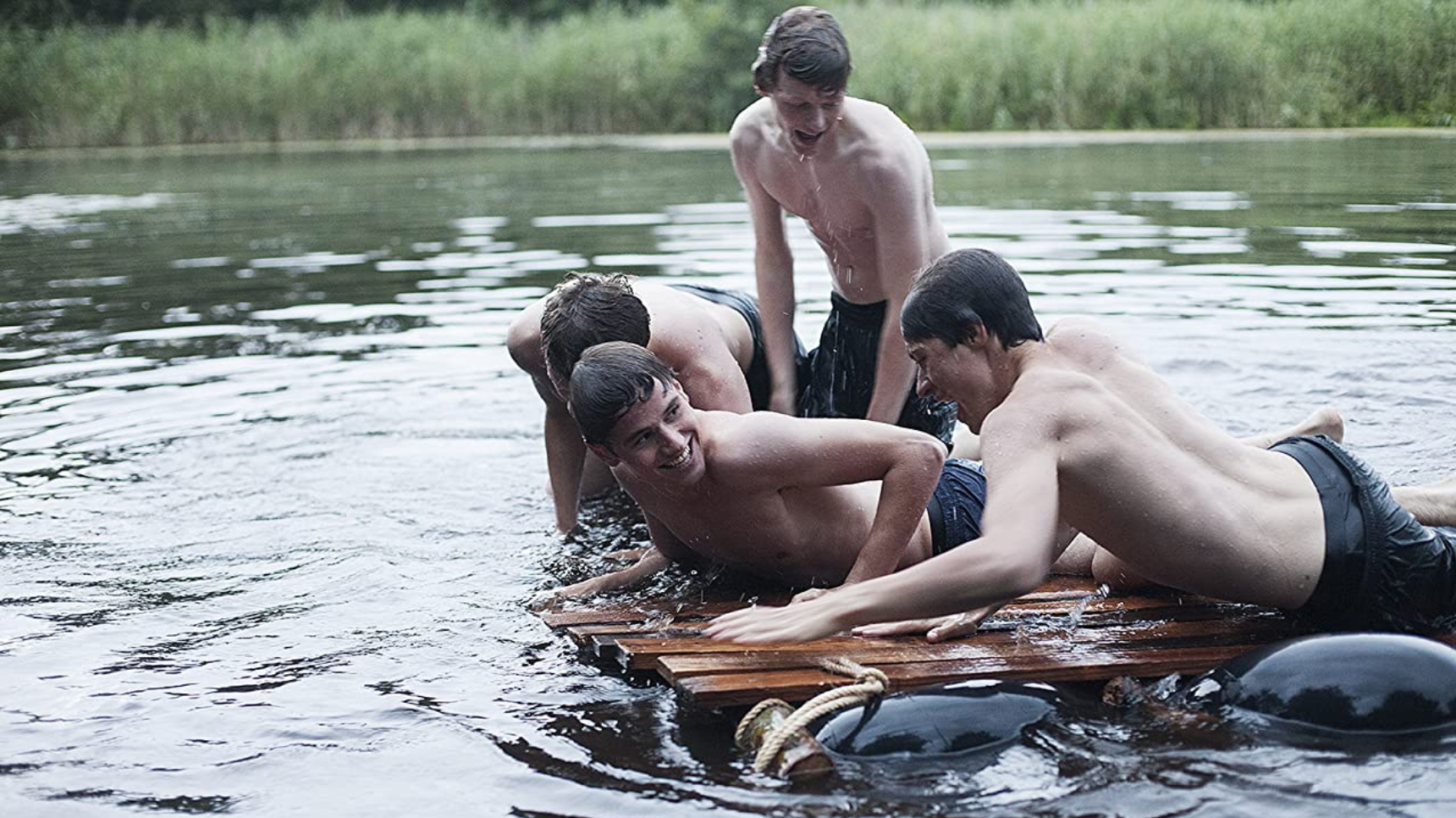Jongens: A Tender Coming-of-Age Story About First Love and Self-Discovery
Jongens (translated as Boys) is a 2014 Dutch coming-of-age drama directed by Mischa Kamp. Set in the idyllic countryside of the Netherlands, the film tells a gentle yet emotionally stirring story about friendship, first love, and the confusion of adolescence. With its subtle direction, natural performances, and quiet beauty, Jongens has been praised for its realistic and heartfelt portrayal of young gay love — one that avoids stereotypes and melodrama in favor of sincerity and grace.
The story follows Sieger, a 15-year-old athlete living with his widowed father and rebellious older brother. He’s a talented sprinter who dreams of winning the national relay championships with his best friend Stef and new teammate Marc. During the team’s training sessions, Sieger and Marc develop a close friendship that gradually deepens into something more intimate. Their relationship begins innocently — shared jokes, late-night bike rides, and quiet moments by the water — but soon, feelings of affection and attraction emerge, leading Sieger to confront emotions he doesn’t yet fully understand.

What makes Jongens stand out is its delicate handling of young love and sexual awakening. The film never sensationalizes or dramatizes Sieger’s journey; instead, it unfolds naturally, mirroring the hesitant, tender rhythm of adolescence. Sieger’s internal conflict — between his growing feelings for Marc and his fear of rejection or misunderstanding — is portrayed with empathy and subtlety. He’s torn between the expectations of those around him and the pull of his own heart, creating a tension that feels deeply relatable to anyone who has ever struggled with identity or belonging.
The chemistry between Gijs Blom (as Sieger) and Ko Zandvliet (as Marc) is quietly magnetic. Their interactions are filled with unspoken emotion — a glance, a touch, a shared smile — capturing the intensity and innocence of first love. Both performances are understated but powerful, conveying a vulnerability that gives the film its emotional core.
Visually, Jongens is breathtaking in its simplicity. The Dutch countryside, with its open skies, golden fields, and serene lakes, becomes more than just a backdrop — it reflects the emotional landscape of the story. The cinematography by Melle van Essen uses natural light and soft tones to create an atmosphere of warmth and nostalgia, evoking the fleeting beauty of youth. The quiet moments — running through fields, diving into rivers, lying in the grass — capture the freedom and uncertainty of being young.
Director Mischa Kamp’s storytelling is grounded in authenticity. The dialogue is minimal, allowing silence and imagery to carry much of the emotional weight. The film’s pacing is gentle, mirroring the slow unfolding of self-realization. Even the family dynamics — Sieger’s strained relationship with his father and brother — add depth without overshadowing the central story of love and acceptance.
One of the most remarkable aspects of Jongens is its hopeful tone. While many LGBTQ+ coming-of-age films dwell on pain or rejection, Jongens chooses tenderness and understanding. It suggests that love, even when confusing or difficult, is something pure and natural. By the end, Sieger’s quiet acceptance of himself feels both liberating and deeply moving.
Ultimately, Jongens is a film about growing up — about learning who you are, what you want, and how to love without fear. It captures the universal experience of first love with honesty and warmth, reminding viewers that the journey toward self-discovery is as beautiful as it is challenging. With its soft visuals, sensitive performances, and emotional truth, Jongens stands as one of the most heartfelt and authentic portrayals of young queer love in modern cinema — a small, tender masterpiece that lingers long after the credits roll.


-1752044439-q80.webp)

